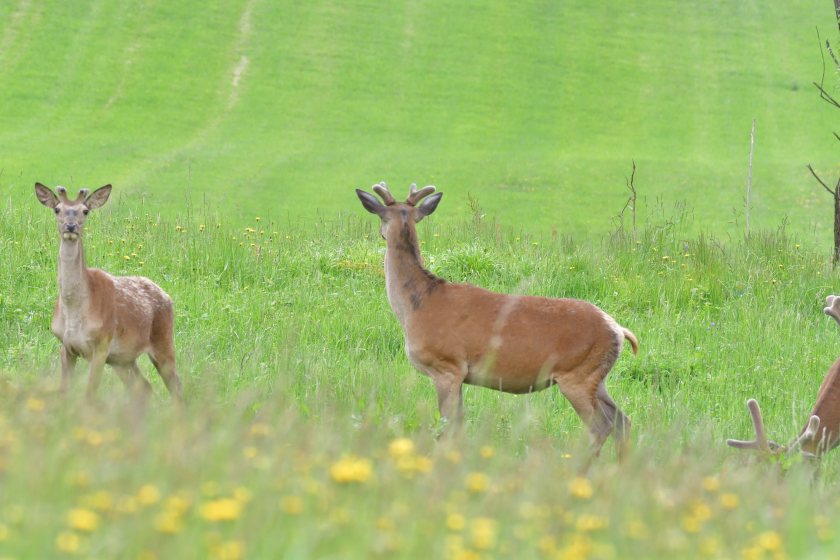
Rural campaigners have called the withdrawal of plans for a larder to help chill and store the carcasses of red deer shot across Lake District as 'illogical'.
United Utilities (UU) had applied for planning permission to create a deer larder building on land it owns close to residents’ homes at Burnbanks, near Haweswater.
This would've contained winches, hoists, a processing table and a freezer to help dress and hang deer carcasses before collection and transportation away by a game dealer, reported The Cumberland and Westmorland Herald.
Every year, the North Lakes Red Deer Group shoots red deer across the huge Haweswater catchment area which spans 10,000 hectares, according to UU.
To control population numbers and protect the health of the herd, deer are stalked for 36 weeks.
UU had insisted that the meat would only be stored for short periods at the site and would not cause an odour nuisance — but their assurances were not enough for some people claiming to live nearby.
The site was chosen because it was plumbed in to services such as electricity and drainage, but residents want the company to reconsider and put the building elsewhere.
Residents Jacqui and Tony Whitfield reportedly told planners: “We love the deer. We’ve even fed them in the garden, but now we’re afraid to get too friendly with them and we don’t want them to trust us in case they get shot.
“We used to see them all the time and now we hardly see them at all. It is so sad to think that such proud animals can be shot.”
Another, Diana Nicolson said: “The sight of carcasses being handled will be very offensive to some of the residents who are vegetarian and vegan and the smell associated with processing carcasses can be both strong and unpleasant.”
But rural campaigners at the Countryside Alliance said that the hampering of essential development required for the processing of culled deer meat should not be based on ‘illogical animal-rights based-sentiment’.
James Aris, it’s spokesman on shooting and conservation said: "There are more deer in the United Kingdom than at any time since the Norman Conquest, and in many places, densities are far too high.
“Overgrazing by deer has been having a huge impact on other species, as well as the biodiversity of our environment due to the excessive browsing of vegetation, including shooting shrubs and sapling trees, that must be protected so they grow to soak up carbon and help fight climate change”.
The planning row comes as Defra recently sought views on key proposals to ensure the sustainable management of the deer population and a reduction in the impacts of deer on the natural environment.
Within the consultation, grants and incentives to boost the venison market were suggested.
Mr Aris added: “With a minuscule carbon footprint – and probably the largest variety of environmental benefits of any meat – venison as a food source is hard to argue with.
"It is packed with protein, zinc and iron, as well as having the added bonus of being good for the climate.
"Any steps taken to enhance the processing of this vastly sustainable source of food, should be welcomed and not prevented solely by holding up illogical animal-rights-based sentiment".
